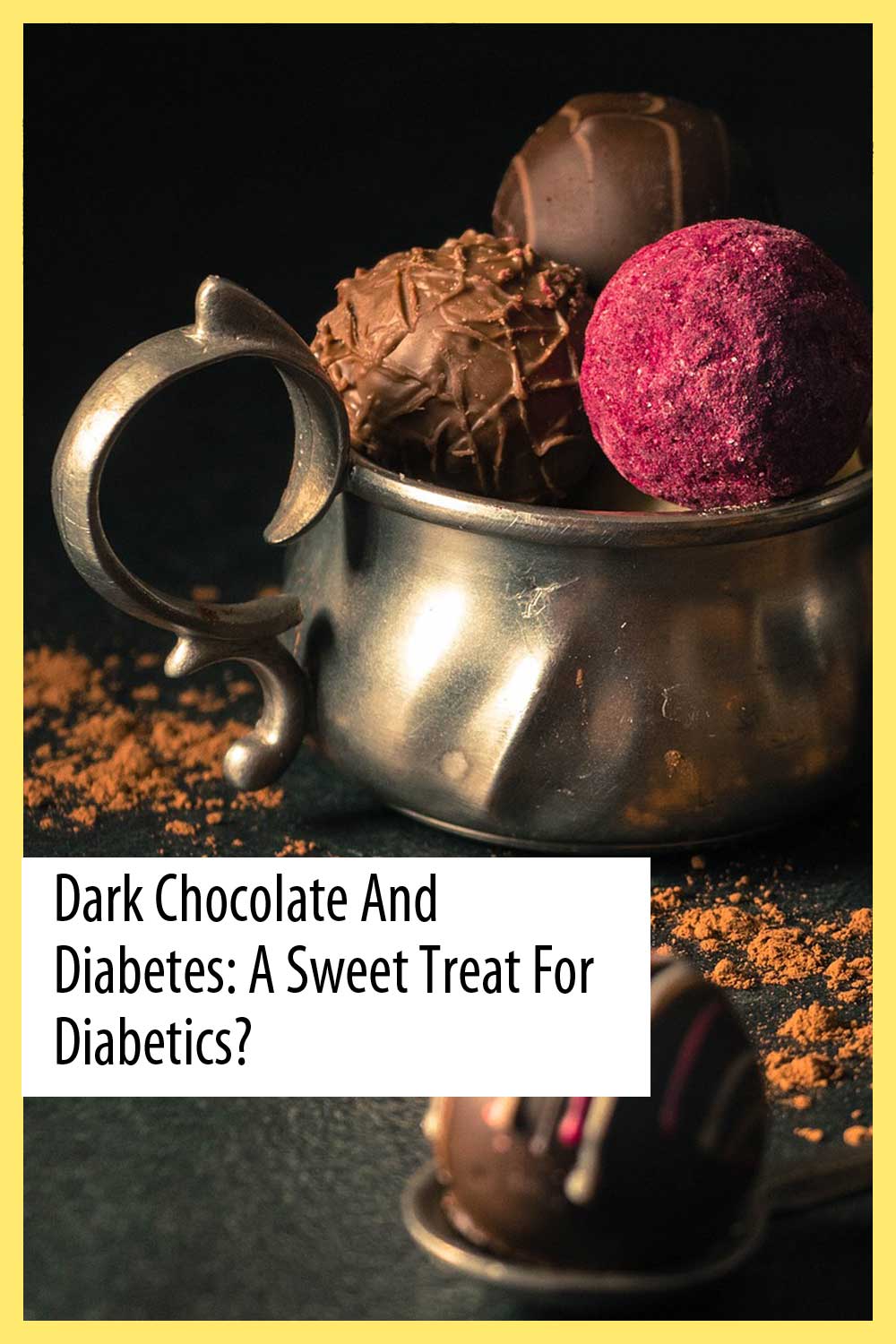
Dark Chocolate & Diabetes: A Sweet Treat for Diabetics?
Living with diabetes often means closely monitoring what we eat, but there might be a glimmer of hope for those with a sweet tooth – dark chocolate. Known for its rich and indulgent taste, dark chocolate has gained attention for its potential health benefits, including possible advantages for individuals with diabetes. In this article, we’ll delve into the relationship between dark chocolate and diabetes, exploring whether this tempting treat can be safely incorporated into a diabetic diet.
1. Understanding Dark Chocolate:
Before we explore its potential benefits, it’s crucial to understand what dark chocolate is. Unlike milk chocolate, dark chocolate has a higher cocoa content and typically contains less sugar and fat. Cocoa beans, the primary ingredient in dark chocolate, are rich in flavonoids, antioxidants, and other beneficial compounds that may offer health advantages.
2. Dark Chocolate & Blood Sugar:
One of the biggest concerns for diabetics is how foods affect blood sugar levels. The good news is that dark chocolate contains a lower glycemic index compared to many other sweet treats. This means it causes a slower and more gradual rise in blood sugar levels, making it a potentially safer option for those managing their blood glucose.
3. The Flavonoid Factor:
Flavonoids are plant-based compounds found abundantly in dark chocolate. These potent antioxidants have been linked to various health benefits, including potential improvements in insulin sensitivity and blood vessel function. We’ll explore how these flavonoids could positively impact individuals with diabetes.
4. Heart Health and Dark Chocolate:
Diabetes and heart health are often interconnected. Dark chocolate’s potential ability to improve heart health might have significant implications for those with diabetes, as they have a higher risk of developing heart-related complications. We’ll discuss the research surrounding dark chocolate’s impact on heart health and how it may benefit diabetics.
5. Moderation Matters:
While dark chocolate may offer some advantages, it’s essential to remember that moderation is key. Excessive consumption of any sweet treat, including dark chocolate, can lead to weight gain and potential adverse effects on blood sugar levels. We’ll provide practical tips on incorporating dark chocolate responsibly into a balanced diabetic diet.
6. Choosing the Right Dark Chocolate:
Not all dark chocolates are created equal. Some products may contain more added sugars or unhealthy fats, reducing their potential benefits. We’ll guide you through what to look for when selecting dark chocolate and how to avoid products that may be less suitable for diabetics.
7. Dark Chocolate Recipes for Diabetics:
Who said indulgence can’t be healthy? We’ll share some delectable dark chocolate recipes that are diabetes-friendly, ensuring you can savor the goodness of dark chocolate without compromising your health goals.
Conclusion:
Dark chocolate indeed appears to be a sweet treat that could potentially offer benefits for individuals with diabetes. Its lower glycemic index, rich flavonoid content, and possible heart health advantages make it an enticing option. However, as with any dietary addition, moderation and careful consideration of individual health needs are essential. Before making any significant changes to your diet, it’s crucial to consult with a healthcare professional. So, if you’re ready to explore the world of dark chocolate, do so with knowledge, balance, and enjoyment!

Dark Chocolate & Diabetes: A Sweet Treat for Diabetics?
Medical Advice Disclaimer
DISCLAIMER: THIS WEBSITE DOES NOT PROVIDE MEDICAL ADVICE
I am not a doctor. The information, including but not limited to, text, graphics, images and other material contained on this website are for informational purposes only. No material on this site is intended to be a substitute for professional medical advice, diagnosis or treatment. Always seek the advice of your physician or other qualified health care provider with any questions you may have regarding a medical condition or treatment and before undertaking a new health care regimen, and never disregard professional medical advice or delay in seeking it because of something you have read on this website.



